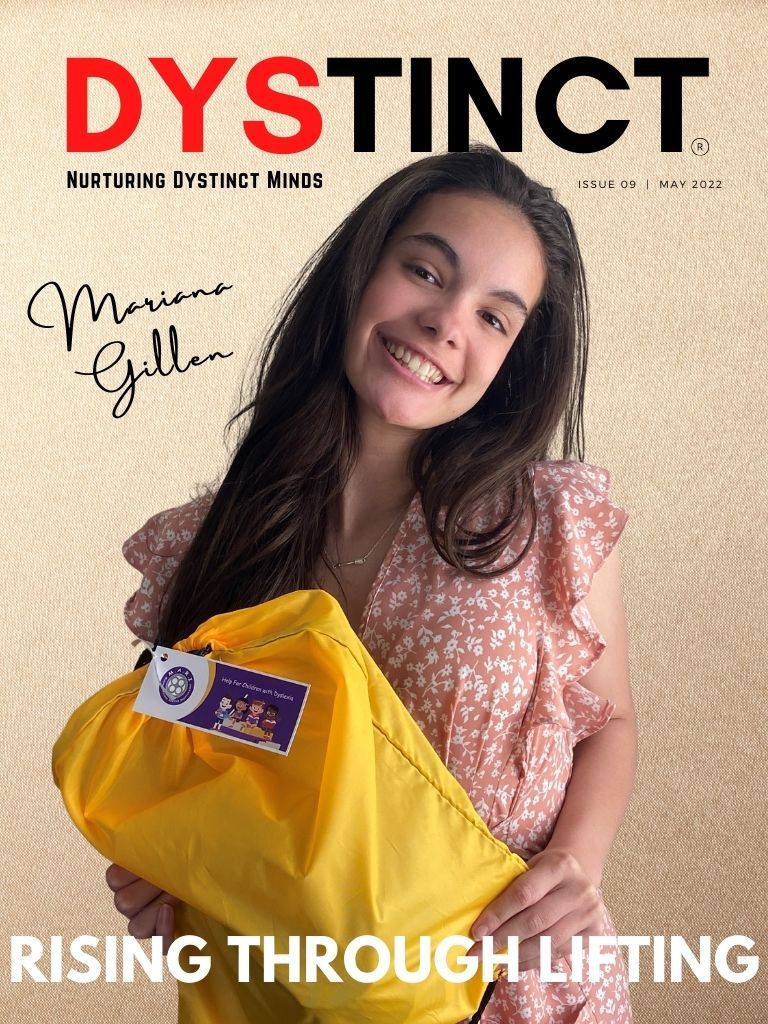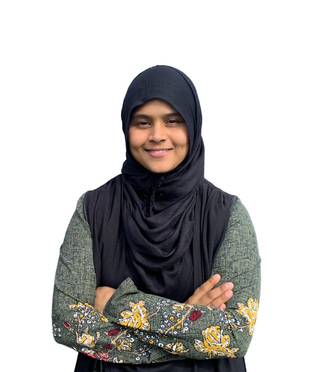Issue 09: May 2022 Dystinct Magazine
Dystinct Magazine's 9th issue: May 2022 is available to download on Apple and Android devices. The issue covers inspirational stories from children and adults with learning difficulties (dyslexia, dysgraphia, dysgraphia and dyspraxia).
Table of Contents
- How to Access Dystinct Magazine
- On the Cover
- Topics covered in this issue (includes links to access on website)
- Editor's Note
- Extracts from the Magazine
How To Access Dystinct Magazine
👉 Read further below to access all the content of the magazine on the website layout. Check links to each article in Topics covered in this issue
The magazine can be accessed on your mobile and tablet devices.
👉 Apple App Store - iOS iPad/iPhone
👉 Google Play Store - Android devices
👉 Libby Apple iOS | Google Android
👉 Zinio Newstand | MagsFast Newstand | Magzter Newstand
On The Cover

Henry Bates is a young ambassador for Dyslexia Canada who has a penchant for collecting antiques, creating sketches, and stop motion films.
TOPICS COVERED IN THIS ISSUE
The November 2022 issue of Dystinct Magazine brings to you:
Don M. Winn elaborates on three recent research studies that give educators and parents valuable insights into the brain's functioning and discusses how these conclusions can be put into practical use to help dyslexic learners and other struggling students work smarter, not harder.
An interview with 24-year-old social media influencer and artist Darcey Harcombe who shares her story of being diagnosed with dyslexia and dyscalculia as an adult and how she has taken charge of her struggles and is living her best life now.
Brenda Larson talks about why it is important for children to feel comfortable expressing themselves in print and outlines 8 practical tips to get students producing great pieces of creative writing.
Greg Brown, the founder of Activate, the first of its kind micro-school for children with dyslexia in Portland, Oregon shares how the students at his school learn and thrive.
Nanci Shepardson discusses how Assistive Technology (AT) tools act as a bridge that empowers children with learning difficulties to access grade-level content and elaborates on the guidelines for the successful selection and monitoring of AT tools.
The story of 15-year-old Girl Scout Mariana Gillen who is spreading dyslexia awareness and hope for young children struggling to learn to read in Tampa, Florida, through her project M.A.R.I kits.
Dr Elizabeth A. VanDeusen outlines how Working Agreements can be a powerful tool for organisations operating in the ever-changing literacy landscape to clarify purpose and optimise group work, so educators are better prepared to serve students.
An interview with Heather Groce, the founder of Set Apart, an afterschool program and camp for struggling readers in the town of Spiceland, Indiana, leveraging on the power of the village to raise confident children.
Candi Sellers explains how handwriting can be an avenue for powerful kinesthetic connections for learning and provides valuable tips to add to an educator's instructional toolbox.
Successful Author and Dyslexia Advocate, Simon Rumney shares his story of growing up in the 60s and how he was made to believe that he was lazy and stupid. As he was dealing with a mental breakdown later in life, his trusted psychologist helped him heal and discover his love for writing.
Kim Lockhart addresses the question, "Can children with dyslexia be successful in a bilingual program?" and provides valuable insights into instructional strategies that can support students who struggle to read and write in a second language.
Editor's Note
If you are irritated by every rub, how will you be polished?
~
Jalaluddin Rumi
This quote by Rumi is the verse of wisdom that I'd like to share with you this month. As parents and advocates of children with additional needs, we are familiar with the frustration of working against a system that is poorly designed. We could burn out easily if we get annoyed at every difficult conversation or IEP meeting that seems to head nowhere helpful. I feel like the only mindset that can keep us going and help us pick our battles with the system is to assume that we are being polished into becoming better advocates for our children at every setback.
In this issue, I have spoken to Greg Brown, the founder of Activate, a microschool for children with dyslexia in Oregon, USA and Heather Groce, the founder of Set Apart, an afterschool program and camp for struggling readers in Indiana, USA to show you two alternate models of education that can work wonderfully for children with learning difficulties.
On the Cover is Mariana Gillen, a 15-year old Girl Scout who is spreading dyslexia awareness and hope for young children struggling to learn to read in Tampa, Florida, through her project M.A.R.I kits.
I hope you enjoy reading this issue and all the specialist content covered.
Please get in touch with me if you have any feedback, ideas, or stories to share to change the narrative surrounding learning disabilities.
Thanks
Zahra Nawaz Shafeeq
Extracts from the Magazine











